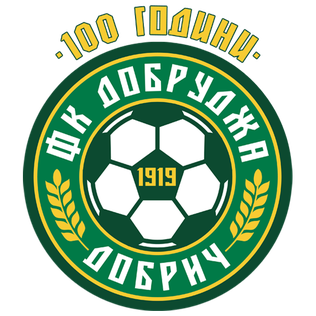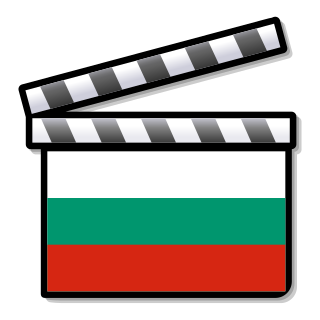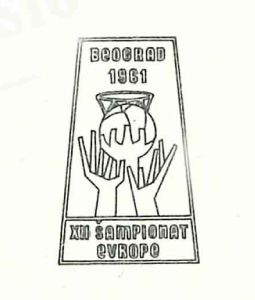Past rosters
1935 EuroBasket: finished 8th among 10 teams
3 Krum Konstantinov, 4 Pinkas, 5 Etropolski, 6 Rogachev, 7 Tsankov, 8 Kevorkjan, 9 Khaimov (Coach: Krum Konstantinov)
1947 EuroBasket: finished 8th among 14 teams
3 Veselin Temkov, 4 Krhisto Khajtov, 5 Ljudmil Katerinski, 6 Aleksandar Damjanov, 7 Sharkov, 8 Kosanov, 9 Peev, 10 Konstantin Georgiev, 11 Nikola Kolev, 12 Rajkov, 13 Bozhidar Takev, 14 Ilija Asenov, 15 Stefan Bankov (Coach: Georgi Petkov)
1951 EuroBasket: finished 4th among 17 teams
3 Iliya Georgiev, 4 Stefan Bankov, 5 Neycho Neychev, 6 Vladimir Savov, 7 Ilija Asenov, 8 Petar Shishkov, 9 Kiril Semov, 10 Konstantin Totev, 11 Anton Kuzov, 12 Gencho Khristov, 13 Ivan Nikolov, 14 Dimitar Popov, 15 Metodi Tomovski, 16 Konstantin Georgiev (Coach: Veselin Temkov)
1952 Olympic Games: finished 7th among 23 teams
3 Iliya Georgiev, 4 Kiril Semov, 5 Neycho Neychev, 6 Khristo Donchev, 7 Vasil Manchenko, 8 Petar Shishkov, 9 Georgi Panov, 10 Konstantin Totev, 11 Anton Kuzov, 12 Gencho Khristov, 13 Ivan Nikolov, 14 Veselin Penkov, 15 Konstantin Georgiev, 16 Vladimir Savov (Coach: Veselin Temkov)
1953 EuroBasket: finished 9th among 17 teams
3 Iliya Georgiev, 4 Vladimir Stefanov, 5 Velko Velkov, 6 Khristo Donchev, 7 Vasil Manchenko, 8 Konstantin Georgiev, 9 Georgi Panov, 10 Konstantin Totev, 11 Anton Kuzov, 12 Dimitar Popov, 13 Lyubomir Panov, 14 Veselin Penkov, 15 Iliya Mirchev, 16 Vladimir Savov (Coach: Veselin Temkov)
1955 EuroBasket: finished 4th among 18 teams
3 Vasil Manchenko, 4 Vladimir Ganchev, 5 Iliya Mirchev, 6 Rajkov, 7 Gencho Khristov, 8 Anton Kuzov, 9 Georgi Panov, 10 Konstantin Totev, 11 Cvjatko Barchovski, 12 Metodi Tomovski, 13 Viktor Radev, 14 Emanuil Gyaurov (Coach: Bozhidar Takev)
1956 Olympic Games: finished 5th among 15 teams
3 Atanas Atanasov, 4 Vladimir Savov, 5 Iliya Mirchev, 6 Viktor Radev, 7 Georgi Kanev, 8 Vasil Manchenko, 9 Georgi Panov, 10 Konstantin Totev, 11 Tsvetko Slavov, 12 Lyubomir Panov, 13 Nikolay Ilov (Coach: Ljudmil Katerinski)
1957 EuroBasket: finished 2nd among 16 teams
among 16 teams
3 Mikhail Semov, 4 Vladimir Ganchev, 5 Iliya Mirchev, 6 Viktor Radev, 7 Georgi Kanev, 8 Petko Lazarov, 9 Georgi Panov, 10 Konstantin Totev, 11 Tsvetko Slavov, 12 Lyubomir Panov, 13 Metodi Tomovski, 14 Atanas Atanasov (Coach: Ljudmil Katerinski)
1959 FIBA World Cup: finished 7th among 13 teams
3 Mikhail Semov, 4 Gencho Khristov, 5 Iliya Mirchev, 6 Viktor Radev, 7 Georgi Kanev, 8 Petko Lazarov, 9 Georgi Panov, 10 Emanuil Gyaurov, 11 Tsvetko Slavov, 12 Lyubomir Panov, 13 Metodi Tomovski, 14 Atanas Atanasov (Coach: Ljudmil Katerinski)
1959 EuroBasket: finished 5th among 17 teams
3 Angel Shipkov, 5 Iliya Mirchev, 6 Viktor Radev, 7 Georgi Kanev, 8 Petko Lazarov, 9 Georgi Panov, 10 Khristo Donchev, 12 Mikhail Semov, 13 Nikolay Ilov, 14 Atanas Atanasov, 15 Tsvetko Slavov, 16 Gencho Khristov (Coach: Ljudmil Katerinski)
1960 Olympic Games: finished 16th among 16 teams
3 Stefan Stoykov, 5 Iliya Mirchev, 6 Viktor Radev, 7 Georgi Kanev, 8 Petko Lazarov, 9 Georgi Panov, 10 Emanuil Gyaurov, 11 Tsvetko Slavov, 12 Lyubomir Panov, 13 Nikolay Ilov, 14 Atanas Atanasov, 15 Khristo Tsvetkov (Coach: Nikola Kolev)
1961 EuroBasket: finished 3rd among 19 teams
among 19 teams
4 Mincho Dimov, 5 Iliya Mirchev, 6 Viktor Radev, 7 Stefan Stoykov, 8 Petko Lazarov, 9 Georgi Panov, 10 Khristo Donchev, 11 Tsvetko Slavov, 12 Lyubomir Panov, 13 Khristo Tsvetkov, 14 Atanas Atanasov, 15 Radko Zlatev (Coach: Veselin Temkov)
1963 EuroBasket: finished 5th among 16 teams
4 Stefan Filipov, 5 Iliya Mirchev, 6 Viktor Radev, 7 Georgi Kanev, 8 Mincho Dimov, 9 Georgi Panov, 10 Dimitar Donev, 11 Tsvetko Slavov, 12 Lyubomir Panov, 13 Nikola Atanasov, 14 Atanas Atanasov, 15 Kliment Kamenarov (Coach: Kiril Khajtov)
1965 EuroBasket: finished 5th among 16 teams
4 Mincho Dimov, 6 Pando Pandov, 7 Georgi Barzakov, 8 Emil Mikhaylov, 9 Valentin Spasov, 10 Kamen Ilchev, 11 Stefan Filipov, 12 Borislav Kolev, 13 Slavey Raychev, 14 Atanas Atanasov, 15 Radko Zlatev, 16 Boto Paspalanov (Coach: Kiril Semov)
1967 EuroBasket: finished 4th among 16 teams
4 Emil Mikhaylov, 5 Slavey Raychev, 6 Pando Pandov, 7 Khristo Doychinov, 8 Georgi Guenev, 9 Boris Krastev, 10 Mincho Dimov, 11 Cvjatko Barchovski, 12 Ivan Vodenicharski, 13 Boycho Branzov, 14 Temelaki Dimitrov, 15 Georgi Khristov (Coach: Kiril Khajtov)
1968 Olympic Games: finished 10th among 16 teams
4 Emil Mikhaylov, 5 Stanislav Boyadzhiev, 6 Pando Pandov, 7 Khristo Doychinov, 8 Valentin Spasov, 9 Stefan Filipov, 10 Mincho Dimov, 11 Ivaylo Kirov, 12 Dimitar Sakhanikov, 13 Boycho Branzov, 14 Slavey Raychev, 15 Georgi Khristov (Coach: Kiril Khajtov)
1969 EuroBasket: finished 7th among 12 teams
4 Khristo Doychinov, 5 Rumen Pejchev, 6 Atanas Golomeev, 7 Dimitar Galabov, 8 Ivan Rusinov, 9 Georgi Barzakov, 10 Mincho Dimov, 11 Bogomil Chanev, 12 Stancho Kostov, 13 Boycho Branzov, 14 Temelaki Dimitrov, 15 Georgi Khristov (Coach: Dimitar Mitev)
1971 EuroBasket: finished 6th among 12 teams
4 Rumen Pejchev, 5 Stefan Filipov, 6 Pando Pandov, 7 Khristo Doychinov, 9 llija Yankov, 10 Boto Paspalanov, 11 Atanas Golomeev, 12 Docho Petrov, 13 Ivaylo Kirov, 14 Slavey Raychev, 15 Georgi Khristov, 16 Bogomil Chanev (Coach: Dimitar Mitev)
1973 EuroBasket: finished 6th among 12 teams
4 Khristo Doychinov, 5 Georgi Stojanov, 6 Pando Pandov, 7 Rumen Pejchev, 8 Ivaylo Kirov, 9 Khristo Borisov, 10 Marin Romanski, 11 Atanas Golomeev, 12 Boris Krastev, 13 Boycho Branzov, 14 Bogomil Chanev, 15 Georgi Khristov (Coach: Nejcho Nejchev)
1975 EuroBasket: finished 5th among 12 teams
4 Khristo Doychinov, 5 Valentin Petkov, 6 Atanas Stojanov, 7 Docho Petrov, 8 Mikhail Mikhajlov, 9 Valentin Sharkov, 10 Marin Romanski, 11 Atanas Golomeev, 12 Mikhail Dukov, 13 Boycho Branzov, 14 Temelaki Dimitrov, 15 Georgi Khristov (Coach: Ivan Kolev)
1977 EuroBasket: finished 6th among 12 teams
4 Milko Arabadzhijski, 5 Linben Yosifov, 6 Petko Marinov, 7 Stojan Shantov, 8 Ilija Evtimov, 9 Mikail Smochevski, 10 Valentin Sharkov, 11 Atanas Golomeev, 12 Plamen Takev, 13 Atanas Kolev, 14 Todor Bogdanov, 15 Rumen Pejchev (Coach: Nejcho Nejchev)
1979 EuroBasket: finished 11th among 12 teams
4 Georgi Glouchkov, 5 Atanas Kolev, 6 Dimitar Donov, 7 Mikhail Manolov, 8 Ilija Evtimov, 9 Hristo Borissov, 10 Valentin Sharkov, 11 Rumen Pejchev, 12 Ognjan Rusev, 13 Milko Arabadzhijski, 14 Todor Bogdanov, 15 Dimitar Marchin (Coach: Ivan Todorov)
1985 EuroBasket: finished 8th among 12 teams
4 Kojo Koev, 5 Atanas Kolev, 6 Jordan Kolev, 7 Rosen Barchovski, 8 Ilija Evtimov, 9 Saško Vezenkov, 10 Ivan Cenov, 11 Georgi Mladenov, 12 Cvetan Antov, 13 Emil Jonov, 14 Georgi Glouchkov, 15 Ljubomir Amiorkov (Coach: Cvjatko Barchovski)
1989 EuroBasket: finished 7th among 8 teams
4 Kojo Koev, 5 Eduard Vălčev, 6 Jordan Kolev, 7 Robert Gergov, 8 Georgi Glouchkov, 9 Ventsislav Slavov, 10 Ivan Cenov, 11 Saško Vezenkov, 12 Georgi Mladenov, 13 Emil Jonov, 14 Cvetan Antov, 15 Ljubomir Amiorkov (Coach: Kiril Semov)
1991 EuroBasket: finished 8th among 8 teams
4 Ivajlo Ravucov, 5 Cvetan Nedelčev, 6 Jordan Kolev, 7 Robert Gergov, 8 Spas Natov, 9 Plamen Petrov, 10 Ivan Cenov, 11 Saško Vezenkov, 12 Georgi Mladenov, 13 Daniel Dimitrov, 14 Georgi Glouchkov, 15 Lubomir Amiorkov (Coach: Saško Vezenkov)
1993 EuroBasket: finished 16th among 16 teams
4 Stanislav Stankov, 5 Anton Kharalanov, 6 Dimo Kostov, 7 Ivajlo Ravutsov, 8 Spas Natov, 9 Ventsislav Slavov, 10 Daniel Dimitrov, 11 Vladimir Dimitrov, 12 Georgi Mladenov, 13 Vasil Stojanov, 14 Robert Gergov, 15 Lubomir Amiorkov (Coach: Saško Vezenkov)
2005 EuroBasket: finished 13th among 16 teams
4 Dejan Ivanov, 5 Kaloyan Ivanov, 6 Tenčo Banev, 7 Yulian Radionov, 8 Filip Videnov, 9 Yordan Bozov, 10 Georgi Davidov, 11 Dimitar Angelov, 12 Stefan Georgiev, 13 Boyko Mladenov, 14 Hrisimir Dimitrov, 15 Todor Stoykov (Coach: Rosen Barchovski)
2009 EuroBasket: finished 16th among 16 teams
4 Deyan Ivanov, 5 Kaloyan Ivanov, 6 Chavdar Kostov, 7 Earl Rowland, 8 Filip Videnov, 9 Stanislav Slaveykov, 10 Stefan Georgiev, 11 Dimitar Angelov, 12 Vassil Evtimov, 13 Boyko Mladenov, 14 Bozhidar Avramov, 15 Todor Stoykov (Coach: Pini Gershon)
2011 EuroBasket: finished 13th among 24 teams
4 Dejan Ivanov, 5 Kaloyan Ivanov, 6 Earl Rowland, 7 Chavdar Kostov, 8 Filip Videnov, 9 Pavel Marinov, 10 Bozhidar Avramov, 11 Zlatin Georgiev, 12 Aleksandar Yanev, 13 Asen Velikov, 14 Tencho Banev, 15 Nikolay Varbanov (Coach: Rosen Barchovski)
2022 EuroBasket: finished 20th among 24 teams [3]
0 Ivan Alipiev, 1 Dee Bost, 2 Deyan Karamfilov, 9 Chavdar Kostov (C), 12 Aleksandar Yanev, 17 Emil Stoilov, 22 Pavlin Ivanov,
23 Stanimir Marinov, 24 Andrey Ivanov, 34 Dimitar Dimitrov, 41 Sasha Vezenkov, 99 Aleks Simeonov (Coach: Rosen Barchovski)








